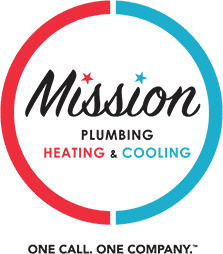What Is the Average Life Expectancy of a Furnace?
Like most HVAC equipment, furnaces are designed to last a long time. The life expectancy of a furnace is the result of several variables, including the type of energy used to generate heat. No matter what heating system you have, regular maintenance is key to extending the lifespan of a gas or electric furnace or heat pump. Find out how long furnaces last, which fuel type lasts longer, and four signs it's time to replace your old furnace.
Furnace Life Expectancy: Different Fuel Types Have Different Lifespans
The primary determining factor in your heating system's longevity is the type of fuel it uses. Gas furnaces heat more than 48% of American households, making them the most prevalent type of heating system.
How Long Does a Gas Furnace Last?
Most gas furnaces last 10 to 15 years. Nearly half of the U.S. is heated with natural gas due to its relatively low cost and ample supply. Gas furnaces are usually the least expensive forced air option to purchase and install, making them popular choices across most of the country.
What Is the Life Expectancy of an Electric Furnace?
Electric furnaces typically last longer than gas furnaces. Most electric heating systems function for 20 to 30 years when regularly maintained and repaired by professionals. Electric heat is more expensive than natural gas, but that may not be the case forever, with natural gas increasingly subject to price volatility.
What Is the Life Expectancy of a Heat Pump?
Most heat pump systems last between 10 and 15 years. There's a good chance your home doesn't use a heat pump, but it’s worth your consideration when it’s time to replace your furnace. While just 1% of US households currently rely on a ground-sourced or air-sourced heat pump, this technology is the most efficient heating option available. Heat pumps are now the preferred heating system in newly constructed homes, with more than 600 million new and replacement furnace installations expected by 2030.
How Long Will My Furnace Last If I Take Care of It?
All heating systems require regular maintenance. This helps you avoid costly emergency repairs and lengthen the functional lifespan of your heating system. Most manufacturers recommend annual preventative maintenance by an HVAC professional.
If you're experiencing problems with a very old furnace, it might be time to consider a replacement.
Four signs of a dying furnace are:
- Cold spots. Older furnaces might struggle to heat your home evenly, resulting in certain areas of your home becoming noticeably colder. While there are other probable causes, including poor ventilation, it's usually a sign that your heater needs attention.
- Higher energy bills. An older heating system may require more energy to heat your home. Noticing higher-than-normal energy bills can be a red flag indicating you have an inefficient system. Compare your energy rates to previous heating bills to determine whether your furnace's age might play a role.
- Poor indoor air quality. Older or poorly maintained gas furnaces can emit higher levels of carbon monoxide. If the flame on your burner (if visible) is yellow, contact an HVAC technician right away. Other signs of carbon monoxide produced by your furnace include soot near the furnace, rust on flue pipes or vent pipes, and moisture build-up on windows or walls close to your furnace.
- Loud sounds. Older furnaces have a way of letting you know they are on their last leg by making strange or loud noises. Listen for banging, rattling, or popping sounds, which are tell-tale signs that internal components are loose, worn, or misaligned.
Repair or Replace: Make an Informed Decision
Trust Mission Plumbing Heating & Cooling to provide expert insight on your furnace. Our friendly technicians can assess the overall health of your furnace, recommend preventative tasks you can complete, and provide trusted annual service to keep your home comfortable for years to come. Request service online or call 913-347-5425 to get started!



